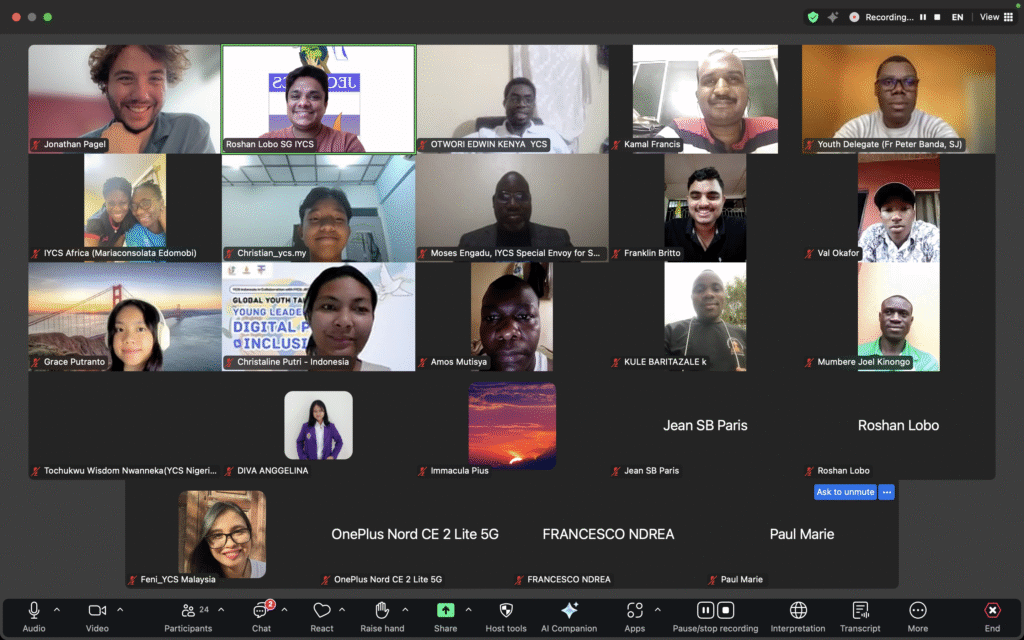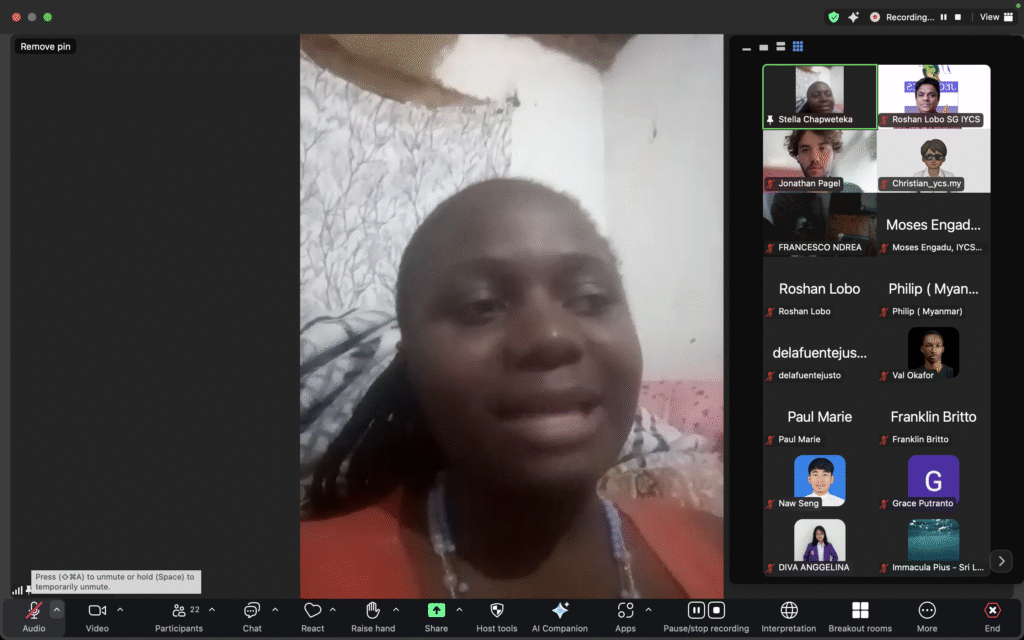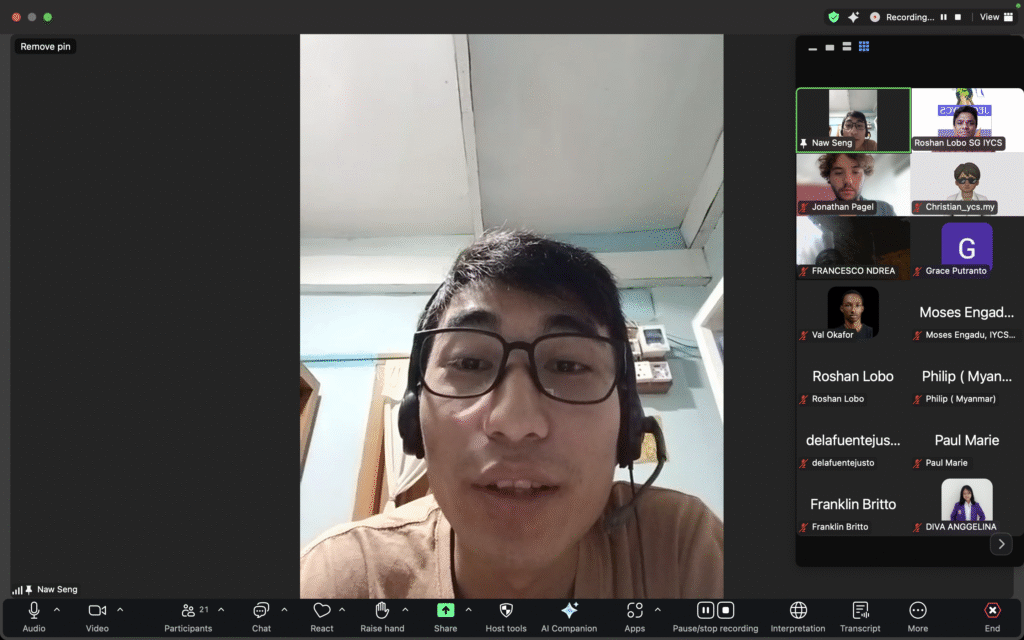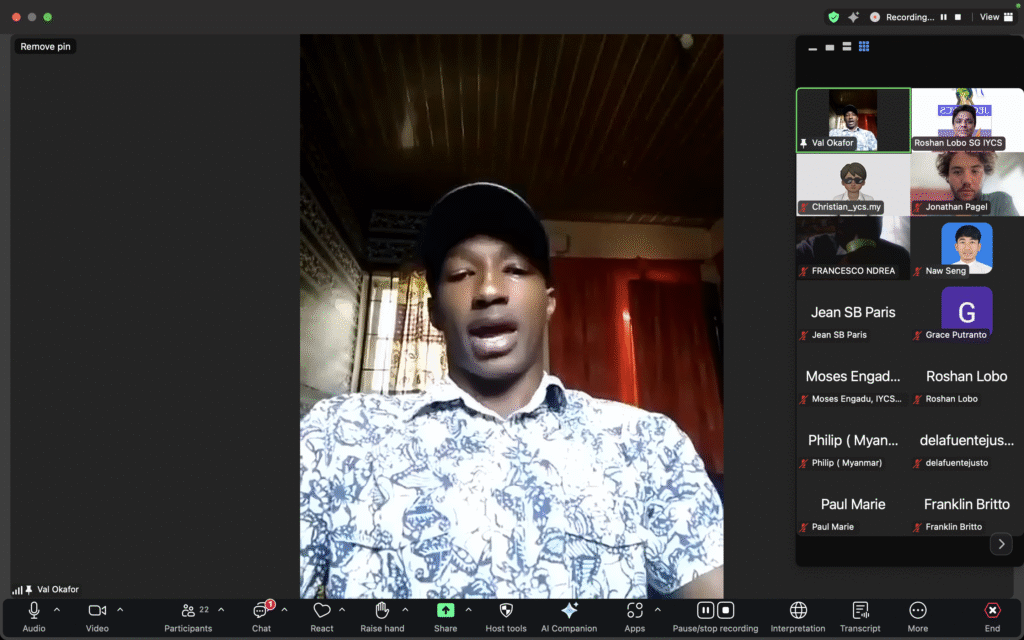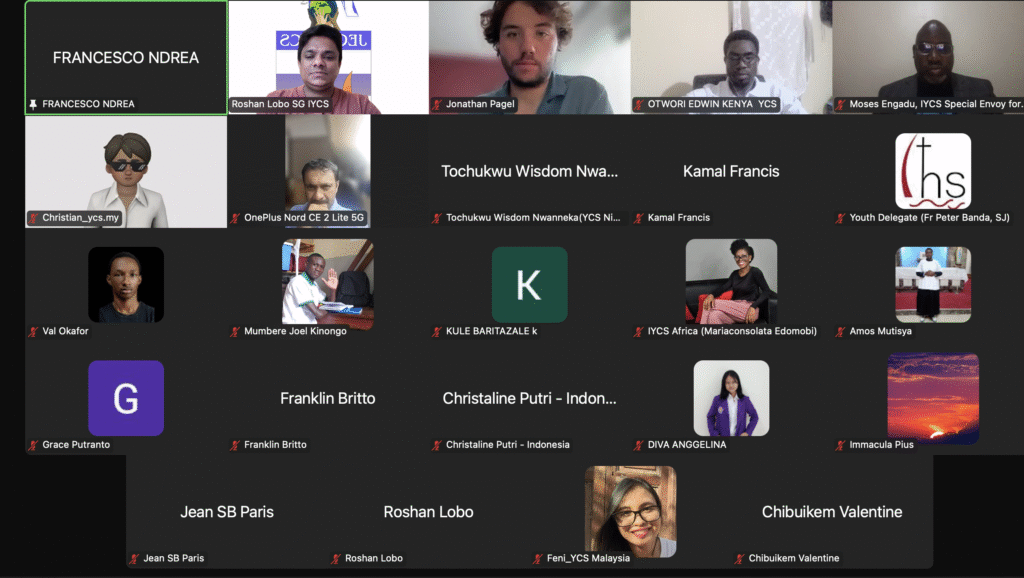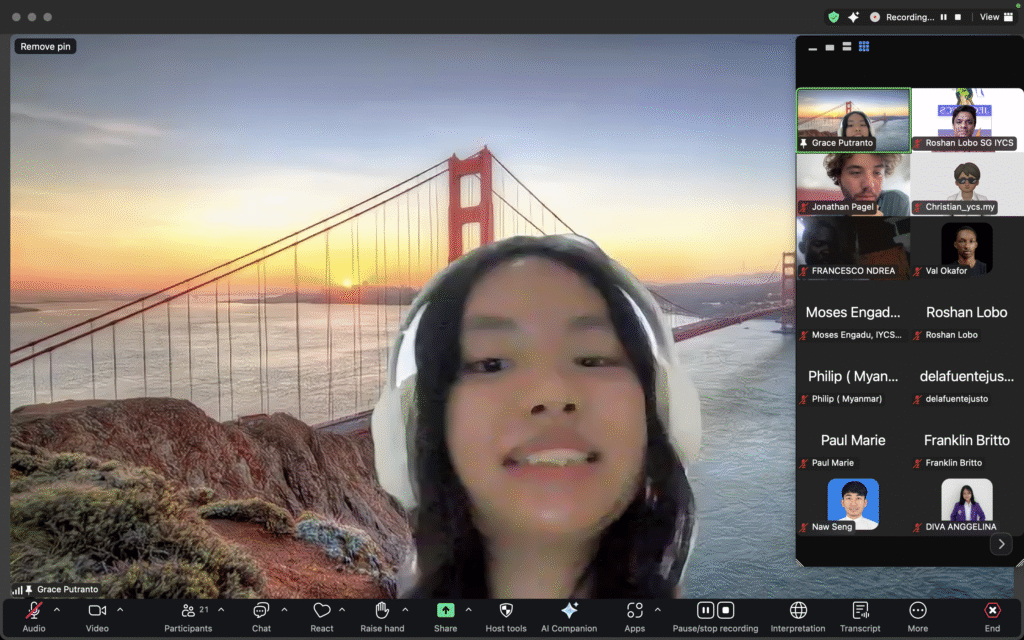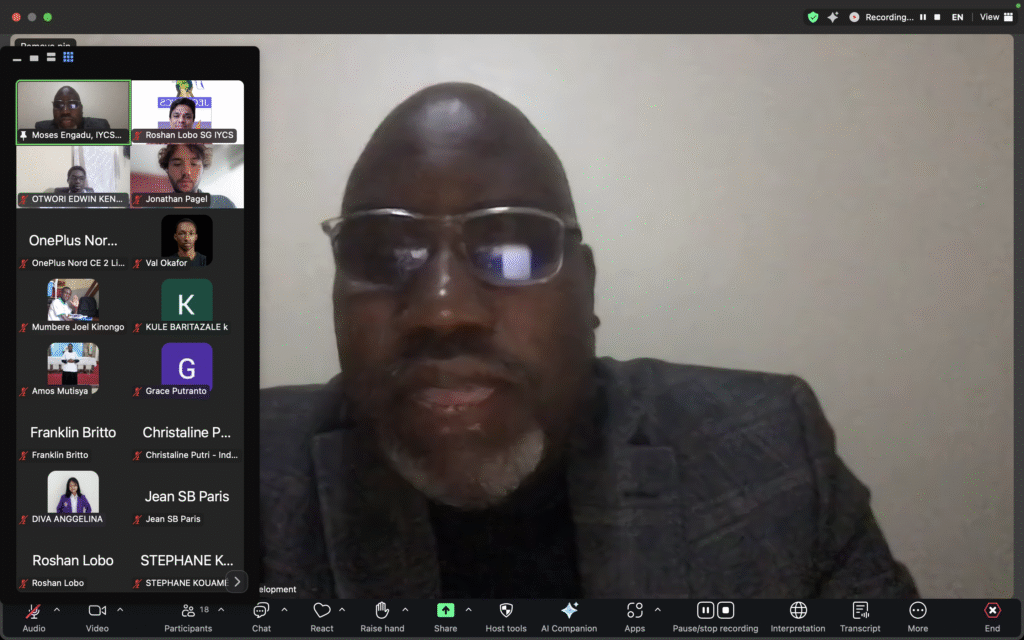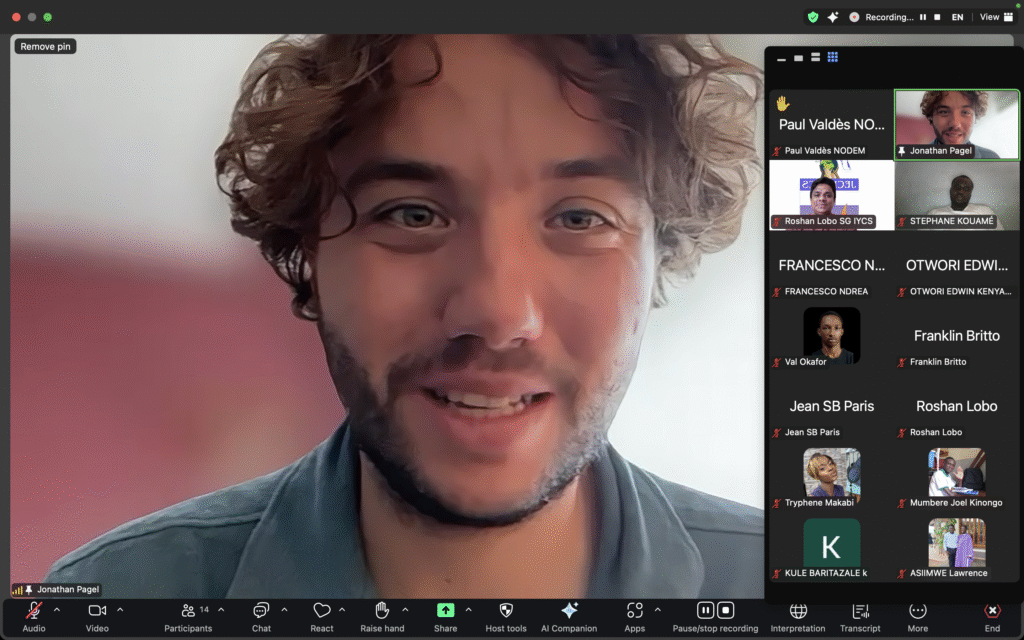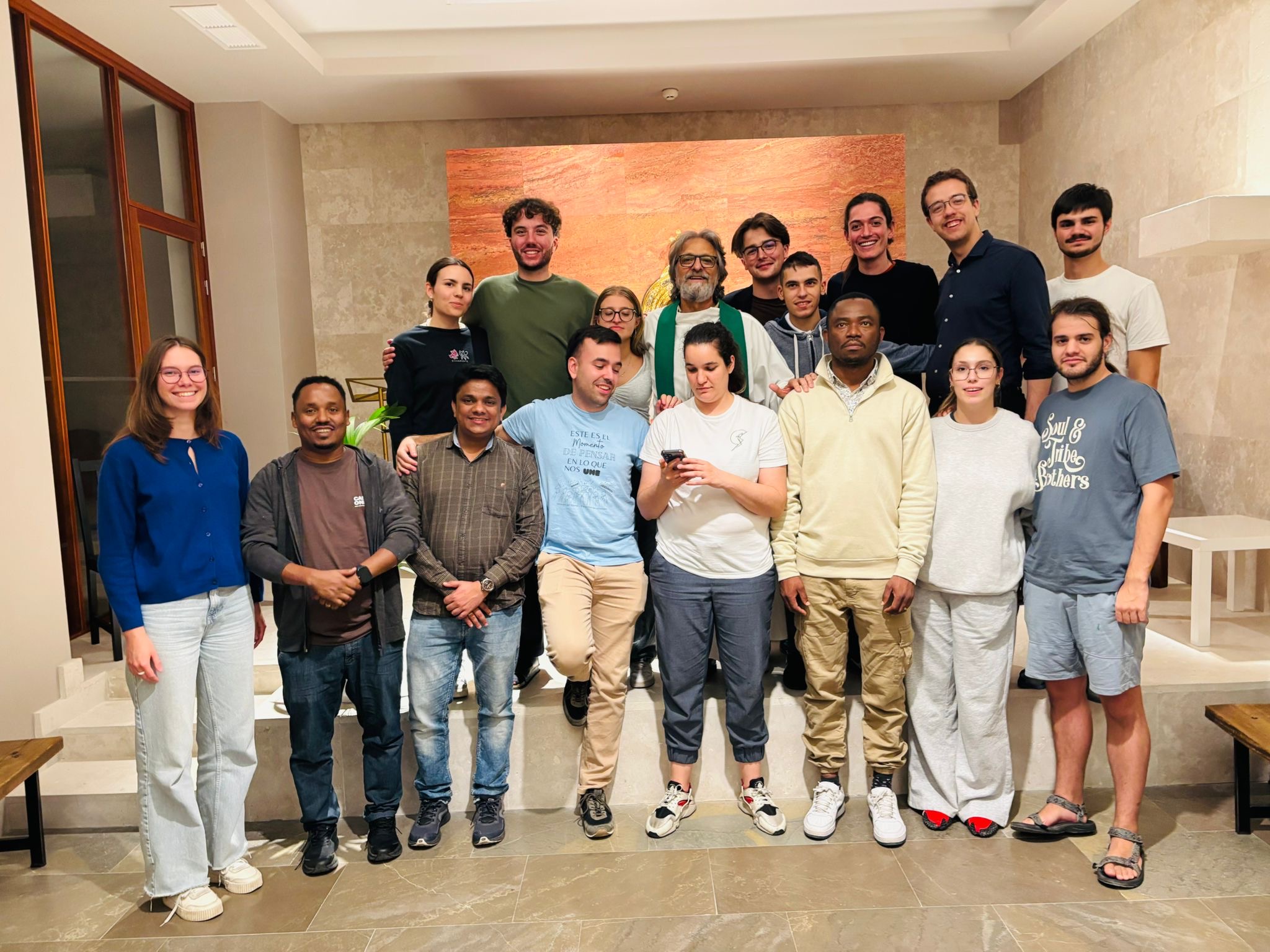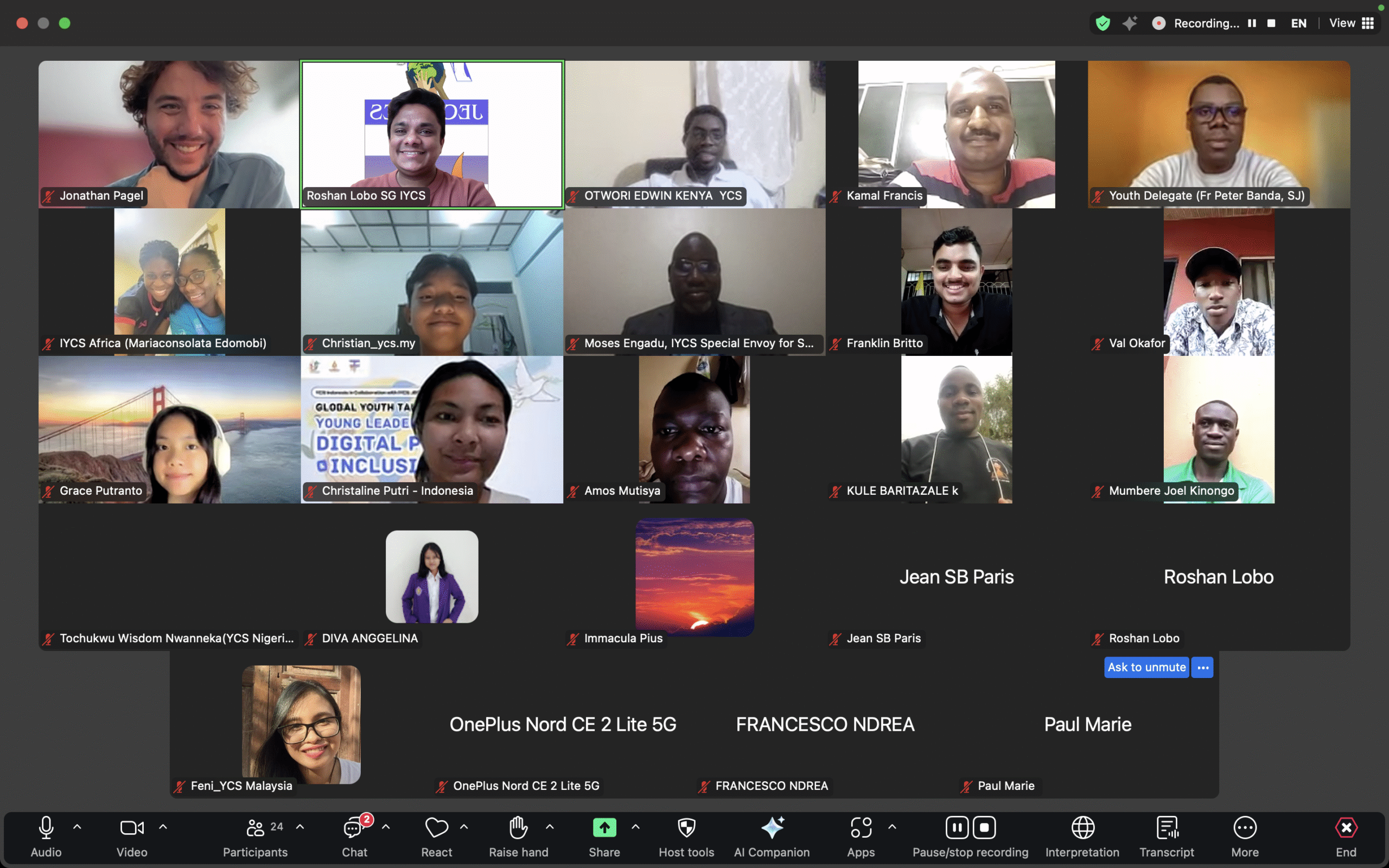
On 17 August 2025, the International Young Catholic Students (IYCS), in collaboration with its Advocacy Commission, successfully organized the Youth-Led Dialogue 2025 via the Zoom platform. The session provided an interactive and inclusive space for young people from across the globe to share their ideas, experiences, and commitments in preparation for the first-ever United Nations Youth-Led Festival, scheduled for September 2025. The event brought together a diverse group of youth leaders, students, and advocates to reflect on current challenges, discuss innovative solutions, and collectively envision a sustainable, inclusive, and equitable future for young people worldwide.
The dialogue was expertly facilitated by Mr. Jonathan Pagel, Member of the IYCS Advocacy Commission, and Mr. Moses Engadu, IYCS Special Envoy for Sustainable Development. Their leadership ensured smooth participation, active engagement, and meaningful discussions. They provided valuable insights into the purpose and objectives of the UN Youth-Led Festival, emphasizing the platform’s potential to amplify youth voices, influence international policy, and showcase youth-led initiatives globally. Mr. Engadu encouraged young Catholic students to actively participate, organize local dialogues, and share their Christian witness, feeding their experiences into the global conversation. Secretary General Roshan Melwyn Lobo expressed gratitude for the opportunity to represent young people at international platforms and underscored the significance of leveraging these platforms to create tangible societal impact.
Key Challenges Discussed
Participants highlighted pressing challenges faced by youth in their respective regions:
- Mental Health: Stress, anxiety, depression, and suicidal tendencies among students were identified as critical concerns.
- Education: Low participation in school and community programs, academic pressure, and lack of access to learning resources were discussed as barriers to youth empowerment.
- Religious Intolerance and Cultural Barriers: Instances of restricted religious practices and cultural obstacles limiting youth participation were noted.
- Environmental Concerns: Poor waste management, blocked drainage systems, and the broader impacts of climate change were discussed as urgent issues affecting both health and education access.
Despite these challenges, presenters highlighted the opportunities afforded by education, technology, global networks, and community engagement. The discussions emphasized practical solutions, collaboration, and proactive youth leadership as pathways to addressing these challenges effectively.
Innovative Youth Solutions and Regional Experiences
Several participants shared insights and innovative approaches from their respective countries:
- Ms. Grace (Indonesia) discussed societal pressures and academic expectations that restrict youth expression, advocating for young people to embrace their individuality and pursue unique paths.
- Mr. Naw Seng (Myanmar) highlighted safety concerns and the importance of virtual platforms for mentorship and youth connection.
- Mr Valentine( Nigeria) emphasized financial literacy, digital skills, critical thinking, and soft skills as essential tools to prepare young people for future societal and professional challenges.
- Ms. Christaline (Indonesia) highlighted religious intolerance, including closures and restrictions on churches, emphasizing the need for advocacy and dialogue.
- Mr. Edwin (Kenya) discussed mental health challenges and poverty-related obstacles, highlighting the importance of global solidarity, community support, and advocacy initiatives.
Youth Leadership and Educational Initiatives
The dialogue explored youth leadership and educational challenges:
- Mr. Christian (Malaysia) shared experiences of low confidence, disrespectful behaviour, and limited participation in school activities.
- Ms. Diva (Indonesia) emphasised the importance of supportive environments to empower youth in navigating their futures.
- Ms. Immacula (Sri Lanka) highlighted challenges such as brain drain, political pressures in universities, and a lack of media literacy, stressing the need to equip youth with skills and knowledge to navigate complex social landscapes.
Uganda YCS Initiatives
Mr. Kule Baritazari (Uganda) presented under the theme “Empowering Faith in Action for a Sustainable Future”, showcasing initiatives including leadership development, water conservation markers in schools, and succession planning. The programs underscored the importance of complementing individual development with teamwork and collective action to achieve long-lasting social impact.
Other notable contributions included presentations by Mr. Francesco and Mr. Mumbere, who highlighted the integration of faith, leadership, academic support, study cycles, and fundraising for social causes, demonstrating practical models for youth empowerment and community engagement.
African Youth Challenges and Environmental Initiatives
- Mr. Stephane (Ivory Coast) highlighted challenges such as unemployment, drug abuse, insecurity, and terrorism, advocating for solutions through education, technology, and international collaboration.
- Ms. Tryphene (Democratic Republic of Congo) addressed environmental hazards caused by poor waste management and blocked drainage systems. She proposed professional training centers to improve waste management, provide employment, and create sustainable solutions within local communities.
Leadership, Youth Empowerment, and Global Dialogue
The dialogue emphasized:
- The need for local engagement and improved communication among youth and their communities.
- Active participation of youth in political, educational, and social life.
- Coordination of resources and initiatives to ensure maximum impact.
Participants committed to organizing youth dialogues in schools, communities, and regions, fostering discussions on peace, solidarity, and sustainable development. They also pledged to submit insights and select youth delegations to officially represent IYCS at the UN Youth-Led Festival. Programs to enhance digital literacy, financial skills, and leadership training were highlighted as critical to equipping youth for the challenges of the future.
Guiding Principles for Presentations
All presentations during the dialogue adhered to three guiding principles:
- Today’s Realities – Highlighting challenges and opportunities currently facing youth.
- The Future We Want – Envisioning a sustainable, inclusive, and equitable future while proposing practical solutions.
- Seeds of Change – Showcasing actionable initiatives, youth-led projects, and success stories to inspire tangible impact.
The Youth-Led Dialogue 2025 successfully united young leaders from around the world, providing them with a platform to exchange ideas, share experiences, and commit to actionable solutions. The session reinforced IYCS’s commitment to empowering youth to be active participants in shaping societies and contributing meaningfully to the first-ever UN Youth-Led Festival in September 2025.
